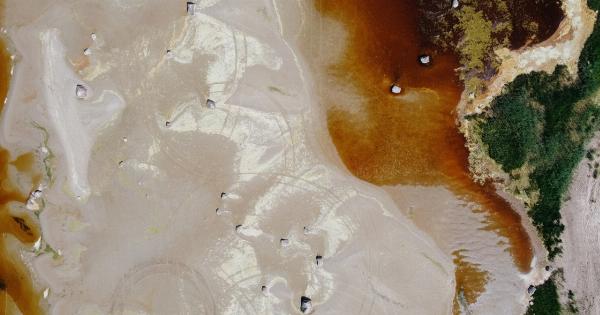Sexual desire is a complex and fascinating aspect of human nature. It is driven by a multitude of factors, including emotional connection, personal history, and psychological well-being.
However, behind the scenes, our hormones play a significant role in shaping our desires and creating the perfect conditions for sexual bliss.
Understanding the Hormonal Orchestra
Our bodies possess an intricate hormonal orchestra, with various hormones performing different roles in the realm of desire. Let’s delve into some key players:.
1. Testosterone: The Master of Libido
Testosterone is often associated with masculinity, and rightfully so. It plays a crucial role in promoting sexual desire, especially in males.
This hormone contributes to increased libido, the frequency of sexual thoughts, and overall sexual satisfaction.
2. Estrogen: Fueling Desire in Both Genders
Contrary to popular belief, estrogen isn’t just a hormone for women. It plays a significant role in men as well. Estrogen helps to maintain healthy sexual function, including lubrication and blood flow.
In women, it helps maintain vaginal health and contributes to heightened sexual sensitivity.
3. Dopamine: The Pleasure Neurotransmitter
Dopamine is a neurotransmitter associated with pleasure and reward. It plays a vital role in the brain’s reward system, reinforcing pleasurable activities, including sexual experiences.
Elevated levels of dopamine can enhance the desire and motivation for sexual encounters.
4. Serotonin: The Mood Regulator
Serotonin, often referred to as the “feel-good” hormone, helps regulate mood and emotions. It promotes emotional stability and can enhance sexual desire, as a positive mental state is often correlated with heightened sexual interest.
5. Oxytocin: The Bonding Hormone
Oxytocin is often called the “love hormone” or “cuddle hormone” due to its role in fostering emotional bonds and intimacy.
It is released during physical touch, such as hugging or sexual activity, and contributes to feelings of trust, closeness, and sexual satisfaction.
The Menstrual Cycle’s Influence on Desire
For women, desire can undergo fluctuations throughout the menstrual cycle due to hormonal changes.
While testosterone levels typically rise leading up to ovulation, leading to increased desire, other parts of the cycle may have fluctuating estrogen and progesterone levels, impacting sexual interest and responsiveness.
The Role of Hormonal Imbalances in Desire
Hormonal imbalances can significantly impact sexual desire. For example, low testosterone levels in both men and women can lead to a decreased libido.
Imbalances in other hormones, such as estrogen or thyroid hormones, can also affect desire and sexual function.
Unlocking the Secrets of Hormonal Balance
If you’re experiencing a lack of desire or suspect a hormonal imbalance, there are steps you can take to promote hormonal balance and unleash your desires:.
1. Prioritize Sleep and Stress Management
Both sleep deprivation and chronic stress can disrupt hormonal balance. Prioritize quality sleep and explore stress management techniques such as meditation, yoga, or deep breathing exercises.
2. Regular Exercise
Engaging in regular exercise can help regulate hormone levels and boost overall well-being. It promotes the release of endorphins, dopamine, and other “feel-good” hormones, positively impacting sexual desire.
3. Eat a Balanced Diet
A balanced diet rich in whole foods can support hormonal health. Incorporate foods that contain essential nutrients for hormone production, such as zinc, vitamin D, and omega-3 fatty acids.
4. Communicate with Your Partner
Open and honest communication with your partner about your desires, fantasies, and concerns plays a vital role in maintaining a healthy and fulfilling sexual relationship. Emotional intimacy can enhance hormonal harmony and desire.
5. Consult a Medical Professional
If you suspect a hormonal imbalance, it’s essential to seek guidance from a medical professional. They can conduct tests and provide personalized solutions to address any underlying issues.
Embracing the Hormonal Path to Sexual Bliss
Understanding the hormonal underpinnings of desire empowers individuals to take charge of their sexual well-being.
By nurturing hormonal balance, prioritizing self-care, and fostering emotional and physical intimacy, individuals can unleash their desires and embark on a journey of sexual bliss.































